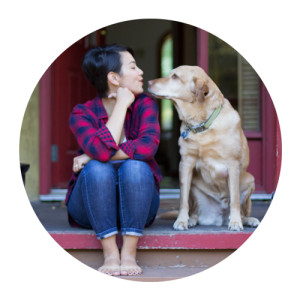Halloween was always a deal in our community. I wouldn’t go as far to say a big deal but it got enough attention to keep the economy going from Thanksgiving to Christmas. I would dress up in whatever lame costume I could come up with (there was no store bought costumes-creativity required) and go out with my friends to the richest part of town to collect our goodies. But I will never forget how one year my friend Molly (she was from the states…her mom’s name was Penny….you get the picture) invited me to her party. I think it may have been a tea party or something. No costumes – I think there were big Lacy hats. We may have bobbed for apples and dipped them in caramel. It was a good time, considering I would have rather been out trick-or-treating. But it always stayed in my mind as the Christian alternative to Halloween. To be honest, I don’t really know how I feel about it. We have dressed Jakob up in the passed, and let him rob Grammy and Grandpa’s candy bowl and then there have been years we haven’t. I know some good Christians that take their kids out trick-or-treating and I know some that turn their lights out and watch TV. But it does beg the question of is it right to celebrate/participate in Halloween activities. Well here it is – the history and a few other points of view. Decide for yourselves, but I would love to know what you think….
The History of Halloween
Halloween or All Hallow’s Eve is in any history the day before All Saints Day, which is the day that the Church (in particular, Catholic and Roman Orthodox) honour the saints. The concept of All Saints Day operates on the idea that all of God’s people, on earth and in heaven or purgatory, are in communion. This does not mean the saints are divine or omniscient, but rather through Jesus Christ our prayers are joined in the heavenly community.
Initially the calendars of saints and martyrs varied from location to location, and many times local churches honored local saints. However, gradually feast days became more universal. The first reference to a general feast celebrating all saints occurs in St Ephrem the Syrian (d. AD 373). St. John Chrysostom (d. AD 407) assigned a day to the feast, the first Sunday after Pentecost, where in the Eastern Churches the feast is celebrated to this day. In the West, this date was probably originally used, and then the feast was moved to May 13th. The current observance (November 1) probably originates from the time of Pope Gregory III (d. AD 741), and was likely first observed on November 1st in Germany. This fact makes the connection of the All Saints Feast with the pagan festival Samhain less likely, since Samhain was an Irish pagan feast, rather than German.
The vigil of the Feast (the eve) has grown up in the English speaking countries as a festival in itself, All Hallows Eve, or Halloween. While many consider Halloween pagan (and in many instances the celebrations are for many), as far as the Church is concerned the date is simply the eve of the feast of All Saints. Many customs of Halloween reflect the Christian belief that on the feast’s vigils we mock evil, because as Christians, it has no real power over us. However, for some Halloween is used for evil purposes, in which many Christians dabble unknowingly.
Various customs have developed related to Halloween. In the Middle Ages, poor people in the community begged for “soul cakes,” and upon receiving these doughnuts, they would agree to pray for departed souls. This is the root of our modern day “trick-or-treat.” The custom of masks and costumes developed to mock evil and perhaps confuse the evil spirits by dressing as one of their own. Some Christians visit cemeteries on Halloween, not to practice evil, but to commemorate departed relatives and friends, with picnics and the last flowers of the year. The day after All Saints day is called All Soul’s Day, a day to remember and offer prayers up on behalf of all of the faithful departed. In many cultures it seems the two days share many customs.
This is taken in part from http://www.churchyear.net/allsaints.html
For Further Reading take a look at Christians and Halloween – probably more catholic influenced article.
Why I Don’t Celebrate Halloween-Some woman’s blog…just like this one but bigger and better
Theopedia-An Encyclopedia of Biblical Christianity
Matters of Opinion-Hallowing Halloween (Christianity Today)
On a side note, the Christian School in Town celebrates Reformation Day, which is also on October 31st. Maybe I will write about that next.













Leave A Reply